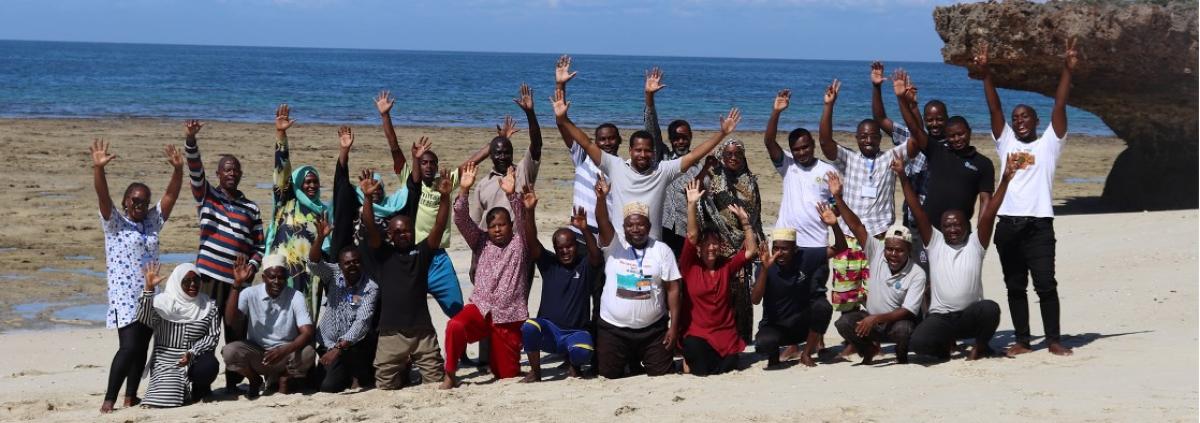
Photo credit: @MwambaoCCN
The Mwambao Coastal Community Network Help Protect Tanzania’s Pemba Channel Conservation Area
September 26, 2022
Content for the SSF Hub Highlight Stories from WildAid Marine. Written by Carolyn Sotka
Between the Zanzibar Archipelago and the coast of Tanzania lies the Pemba Channel Conservation Area (PECCA), where crystal blue waters are home to the region’s deepest coral reefs and IUCN red-listed species including the Indian Ocean humpback dolphins, humphead wrasse, bumphead parrotfish, and blacktip reef sharks. PECCA also serves as a nesting site for endangered hawksbill and green sea turtles, and seabird colonies.
WildAid Marine has worked in Tanzania since 2019 to help artisanal fishing communities that live on Pemba Island better protect PECCA from illegal fishing and other harmful activities.
This area holds immense cultural and economic importance for the island’s 400,000 residents, many of whom depend on healthy fisheries and coastal tourism for their livelihoods. Unfortunately, rampant illegal fishing seriously threatens the health of fish populations, species of commercial importance and endangers marine wildlife. Thus, it is critical for community-based institutions to develop and enforce rules governing the use of community fishing grounds.
While the size of PECCA is one of its greatest assets, it also makes it difficult for Pemba’s fishery officers and the local Shehia Fisher Committees (SFCs) to protect given their limited resources. Most illegal activities in PECCA go undetected due to lack of law enforcement officers or simply because local laws are not enforced.
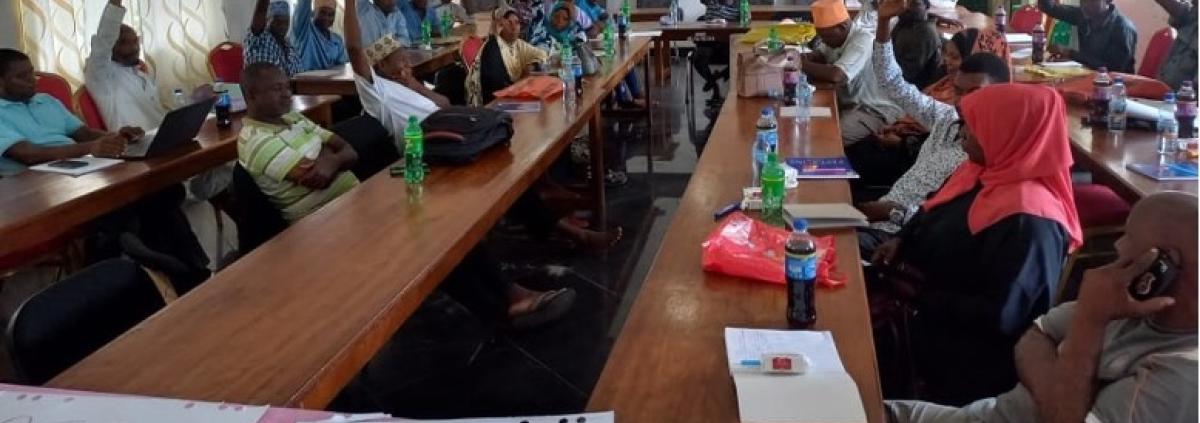
When WildAid Marine partnered with the Mwambao Coastal Community Network to support the Zanzibar Department of Fisheries Development (DFD) and the SFCs, the SFCs had no boats and could only patrol the coast on foot. They could view threats to their marine life taking place but were unable to respond. Achieving effective marine surveillance and management was essential not only for the survival of marine wildlife, but also for the artisanal fishing sector in Pemba.
In October 2019, WildAid Marine delivered the Pemba Channel Conservation Area: Assessment and Marine Compliance Report with one of the recommendations for the DFD to strengthen enforcement capacity and make critical investments in staff, infrastructure and training to improve communication and ensure a presence throughout the PECCA.
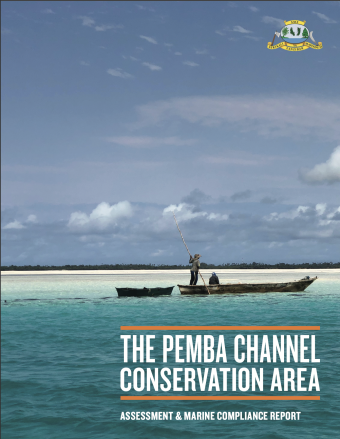
WildAid Marine’s Marine Protection System Plan for PECCA.
In September 2020, the WildAid Marine team conducted a remote training on patrol techniques for our partners in Tanzania. Senior representatives from DFD and Mwambao attended the 'Train-the-Trainer' course that took place over two days. WildAid Marine used Zoom to share best practices and facilitate discussions around patrolling techniques. WildAid Marine also provided two patrol vessels, a set of patrol aids/standard operating procedures, and training materials to equip the SFCs with the necessary tools to enhance enforcement capacity in PECCA.
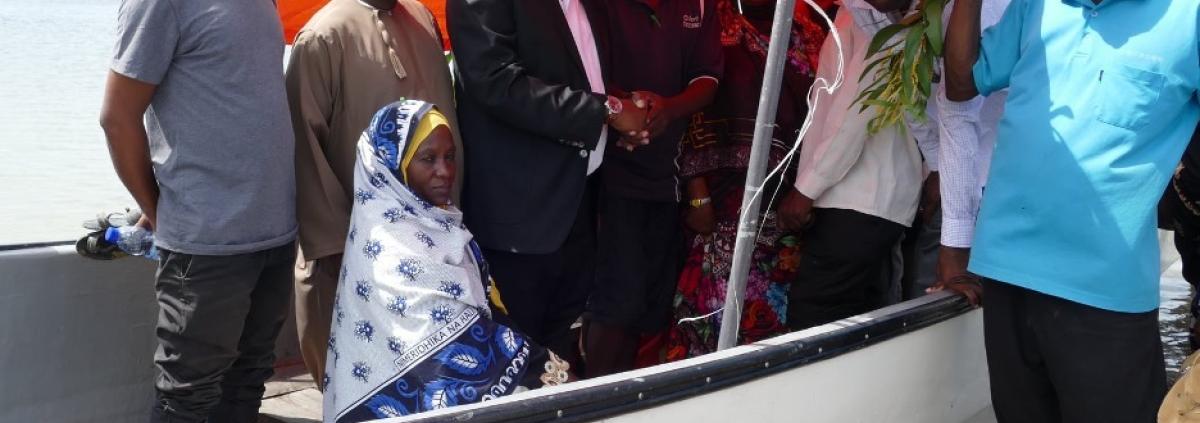
Minister for Blue Economy and Fisheries, Hon Abdallah Hussein Kombo handed over two community patrol boats for the collaborative groups in the Mkoani District, Pemba. The boats were donated by WildAid and training was given by the Department of Fisheries Development; also funded by USAID’s Protect Project in Tanzania. Photo credit: @MwambaoCCN
In December 2021, the DFD and the Mwambao Coastal Community Network led a training course for new SFC members using the curriculum and training materials provided by WildAid. The intention of WildAid Marine’s work with our global partners is to design and implement marine compliance programs that combine local knowledge with field tested strategies for tangible results and protection of priority marine areas. This framework and training program in marine enforcement and surveillance is meant to become self-sustaining and eventually led by local marine resources experts or rangers. The Mwambao Coastal Community Network’s activities are an excellent example of this collaboration, with additional community enforcement and practical patrol training planned for other parts of Pemba Island.
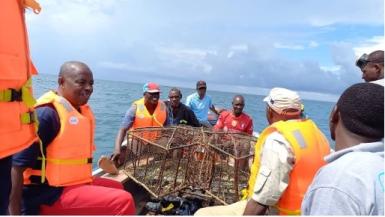
SFCs receive training in inspecting fishing catches, enforcement of fisheries regulations and patrol procedures. Photo credit: @MwambaoCCN
In 2022, additional equipment and supplies were provided to support active patrols of PECCA including uniforms, binoculars, mobile phones, whistles, flashlights, anchors, knives, measuring tapes, and reflectors. Community Fisheries Patrols were conducted to educate fishers, cite violators, minimize illegal fishing practices, and instill a sense of security and law compliance in the surrounding areas. From April – June 2022 36 patrols were conducted with 1,577 fishers interviewed from 315 fishing vessels, of which 38% were fishing illegally. Citations were issued for use of prohibited gear including beach seines, spears, wire traps, monofilament and scuba equipment. Instead of arrest, violators were brought into the DFO for additional education on the impact of illegal fishing practices to the long-term sustainability of local fishery stocks and to their livelihoods.
The Mwambao Coastal Community Network has a deep understanding and respect for Swahili coastal culture and has established good community relations in the villages in which it works. Mwambao currently works with eight villages located in the Unguja, Pemba, Tanga, Bagamoyo and Temeke Districts. Through conservation education and outreach, Mwambao hopes to foster behavioral change, improved awareness, and a shift towards compliance with laws and to stop illegal and destructive practices.
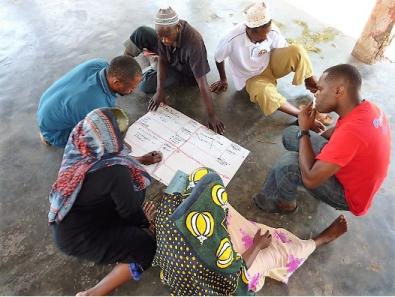
Mwambao’s vision is that Tanzanian coastal community livelihoods are improved and sustainably supported by the ecosystem services provided by a healthy and biologically diverse coastal environment. Photo credit: @MwambaoCCN
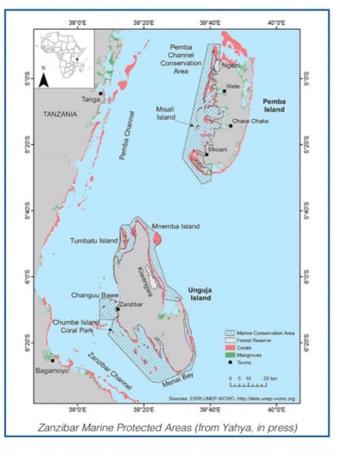
Location of Pemba Island and PECCA off the coast of Tanzania. Map from the IUCN Aquaculture and Marine Conservation Zanzibar Case Study.
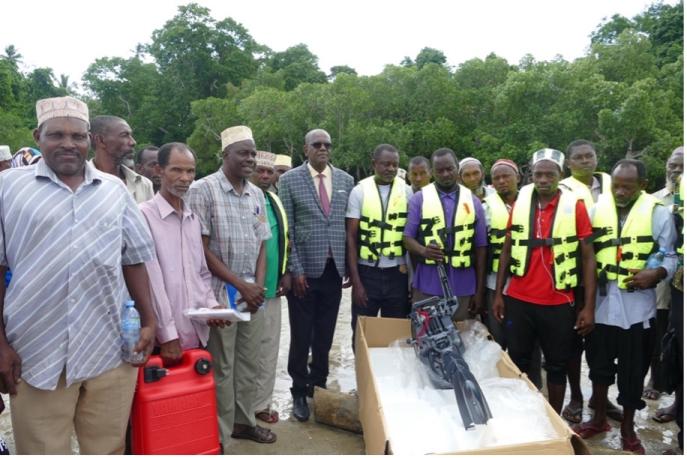
Delivery of a motor to the Mwambao Coastal Community Network. Photo credit: @MwambaoCCN
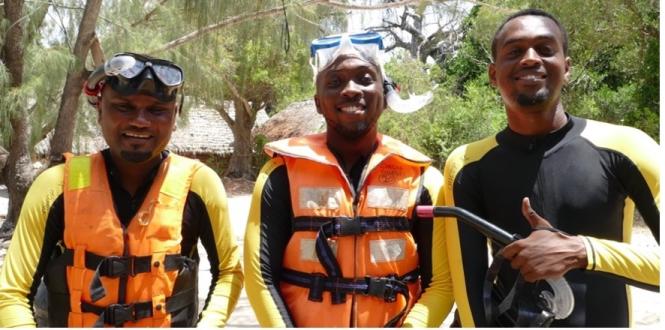
Chumbe Island Coral Park rangers offer the opportunity to Mwambao team to see firsthand what a No-Take-Reef-Zone looks like after 30 years of protection. The Mwambao Head of Finance goes snorkeling for the first time! Photo credit: @MwambaoCCN
WildAid Marine is a proud partner of the Small-Scale Fisheries Resource and Collaboration Hub and 2022 is officially the International Year of Artisanal Fisheries and Aquaculture. Join us in celebrating the Mwambao Coastal Community Network and our continued partnership dedicated to the protection of critical marine areas!
This article is part of the SSF Highlights series of articles published regularly to the SSF Hub. To read previous SSF Highlights, follow this link.
